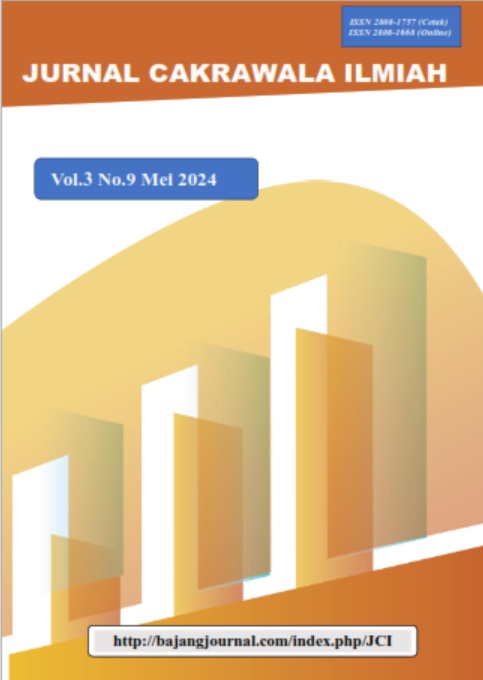HUBUNGAN KUNJUNGAN PRABEDAH TERHADAP KEPUASAN PASIEN DI RUMAH SAKIT DUSTIRA CIMAHI
Keywords:
Preoperative Visits, Patient Satisfaction, Quality Of ServiceAbstract
Preoperative visits have become part of clinical practice in many hospitals. Preoperative visits aim to provide information to patients about the surgical and anesthesia procedures that will be performed. This study aims to explore the relationship between preoperative visits and patient satisfaction to improve the quality of health services. This research method uses an observational descriptive approach through questionnaires to elective surgery patients at Dustira Hospital Cimahi. There were 543 patients undergoing surgery under anesthesia during April 2024, while 215 patients met the inclusion criteria and completed the questionnaire. Based on the sample characteristics, the majority of patients were women (54.9%), followed by the age group of 31-45 years (44.2%), undergoing major surgery (63.3%), and general anesthesia (57.2%). Patient satisfaction levels, when correlated with sample characteristics, showed that highly satisfied patients were male, aged 46-60 years, underwent minor surgery, and received general anesthesia, while other groups were at satisfactory levels. Patient satisfaction based on the questionnaire showed that most patients were satisfied with the service, with the highest order being satisfied (55.8%), followed by highly satisfied (37.4%), neutral (13.5%), and dissatisfied (8.1%). Patients felt satisfied and highly satisfied with anesthesia and surgical services, while no patients felt dissatisfied. This condition indicates that preoperative visits can increase patient satisfaction
References
Babin, Barry. J, Yong-Ki Lee, Eun-Ju Kim, Mitch Griffin. (2005), Modelling Consumer Satisfaction and Word of Mouth. Restaurant Patronage in Korea. Journal of Services Marketing 19.
Bowie P, Halley L, Blamey A (2016). A qualitative evaluation of the safety and improvement in primary care (SIPC) pilot collaborative in Scotland: perceptions and experiences of participating care teams. BMJ Open.
Baker J J, & Baker R W (2017). Health Care Finance: Basic Tools for Nonfinancial Managers. Jones & Bartlett Learning, Houston.
Buchbinder SB, & Shanks NH (2021). Introduction to Health Care Management. Jones & Bartlett Publishers, Denver.
Cantiello J, Kitsantas P, Moncada S, Abdul S (2016). The evolution of quality improvement in healthcare: patient-centered care and health information technology applications. Journal of Hospital Administration. Vol. 5, No. 2: 62-68.
Christy dan Lee Mathew. (2010), What Drives Consumers to Spread Electronic Word of Mouth in Online Consumers-Opinion Platforms, Article of Decision Support System.
Cronin, JJ and Taylor. (1992), Measuring Service Quality: A Reexamination and Extension, Journal of Marketing, 56 (July 1992), pp 55-68.
Clay AM, Parsh B (2016). Patient- and family-centered care: it's not just for pediatrics anymore. AMA Journal of Ethics. Vol. 18: 40–44.
Ekotama, Suryono. (2009), Trik Jitu Promosi Murah Meriah, Cemerlang Jakarta.
Ferdinand, Augusty. (2002), Structural Equation Modelling Dalam Penelitian Manajemen, Aplikasi Model-model Rumit Dalam Penelitian Untuk Tesis Magister & Disertasi Doktor, BP UNDIP Semarang.
Furman C, Caplan R (2007). Applying the Toyota Production System: Using a patient safety alert systemto reduce error. The Joint Commission Journal on Quality and Patient Safety. Vol. 33, No. 7: 376–386
Ghozali, Imam. (2005), Model Persamaan Struktural, Konsep dan Aplikasi Dengan Program AMOS Ver.5.0, Edisi II, BP UNDIP Semarang.
Gilovich T, Griffin D, Kahneman D (2002). Heuristics and Biases: The Psychology of Intuitive Judgment, Cambridge University Press, Cambridge, UK.
Ginter PM, Duncan WJ, Swayne LE (2018). The Strategic Management of Health Care Organizations. John Wiley & Sons, New Jersey.
Indriaty, D.R. (2010), Anaisis Pengaruh Tingkat Kualitas Pelayanan Puskesmas Gunungpati Semarang Terhadap Kepuasan Pasien, Fakultas Ekonomi Undip Semarang.
Institute of Medicine (2001). Crossing the quality chasm: a new health system for the 21st century. Washington, DC: National Academy Press,
Jalilvand, M.R. (2012), The Effect of Electronic Word of Mouth on Brand Image and Purchase Intention, Journals of Marketing Inteligence and Planning, Vol. 30, pp 5.
Kotler dan Armstrong. (2004), Prinsip- Prinsip Pemasaran, Jilid I, Edisi Kedelapan, Erlangga Jakarta.
Kotler dan Keller. (2007), Manajemen Pemasaran, Jilid II, Edisi Milenium, PT Indeks Jakarta.
Kutner, M. H, C.J. Nachtsheim, and J. Neter. (2004), Applied Linear Regression Models, 4th ed, McGraw-Hill Companies New York.
Lovelock, Christopher and Jochen Wirtz. (2008), Service Marketing: People, Technology, Strategy, Sixth Edition, Prentice Hall Singapore.
Langebeer JR, Helton J. Health (2020). Care Operations Management: A Systems Perspective. Jones & Bartlett Learning, Houston.
Downloads
Published
How to Cite
Issue
Section
License
Copyright (c) 2024 Jurnal Cakrawala Ilmiah

This work is licensed under a Creative Commons Attribution-NonCommercial 4.0 International License.
















